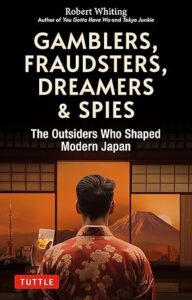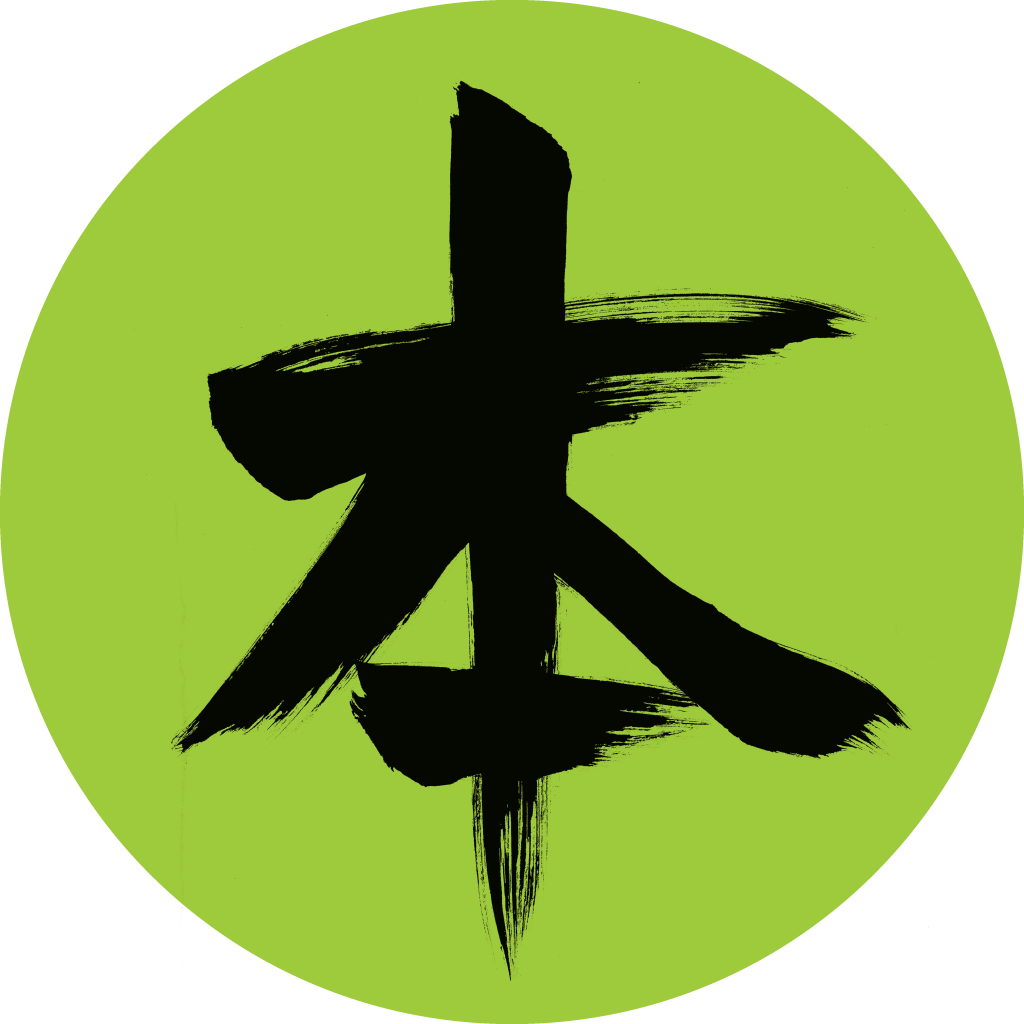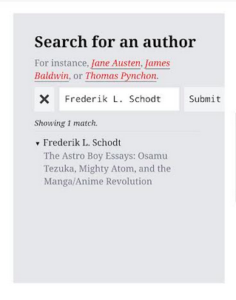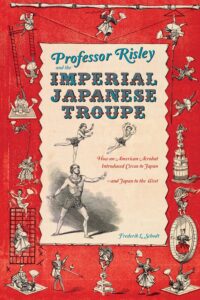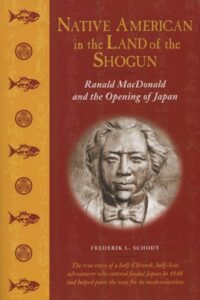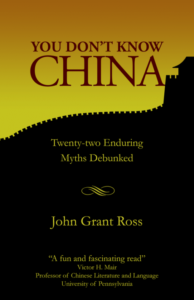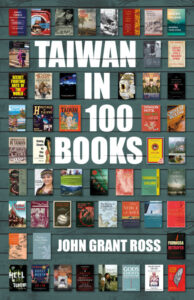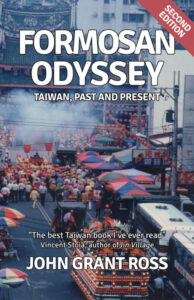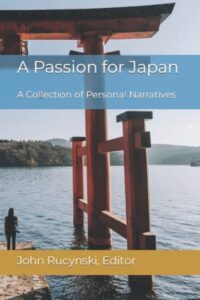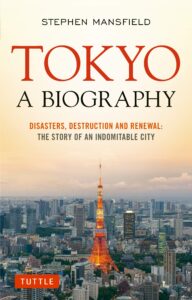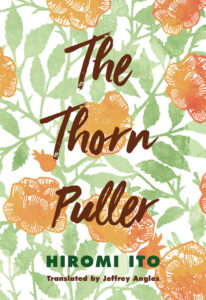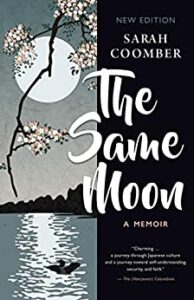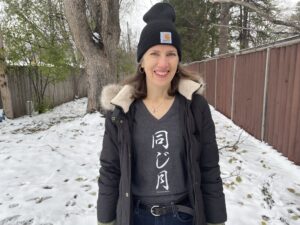In this episode of the Books on Asia podcast, host Amy Chavez talks to author John Stevens about his latest book The Lotus Moon: Art and Poetry of Buddhist Nun Otagaki Rengetsu (Floating World Editions, Aug. 2023).
Book’s Features:
The most comprehensive English-language presentation of the work of famed nun and artist Ōtagaki Rengetsu (1791-1875)
• Presents 90 of Rengetsu’s painting and pottery works in over 242 full-color photos
• Written by Professor John Stevens, the foremost Western authority on Rengetsu
• Includes Japanese kana, romanization, and English translations, with commentary for all entries
• Provides an intimate portrait of the life and work of one of the most remarkable women in Japanese culture
• Offers insights into significant thematic and cultural concerns of 19th-century Japanese art
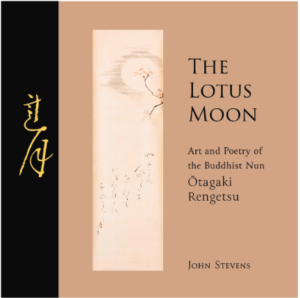
Ep 35 transcript:
Today we have with us John Stevens, author of over a dozen best-selling books on Japan in the martial arts, poetry, and Buddhism. Today, he returns to the Books on Asia podcast to discuss his latest book The Lotus Moon: The Art and Poetry of Buddhist Nan Ōtagaki Rengetsu.
Amy Chavez: Welcome back to the Books on Asia podcast, John.
John Stevens: Yes, glad to be here. A little background on Rengetsu. She was born In 1991, she was a love child of a daimyo from Iga Ueno.
She was adopted by a lay priest at Chion-in. It’s a big temple in the Kyoto. And she was raised at the temple until she was seven years old. And she went to a castle in Kameoka to train as a samurai lady. And she was by all accounts, a great martial artist, even at a young age, and naginata, sword work, jujitsu, all kinds of things.
Amy: She was born in 1791, and she died in 1875, so this is the time period. And was that normal at the time that a woman would train in those arts?
Stevens: Yes, it was a very real danger of being attacked, you know, and so they had to be really well-trained, and also be able to commit suicide—the proper way of, you know, binding your legs together, sitting in seiza, holding the sword and leaning on it—because that was also a real possibility.
Amy: Who would be attacking?
Stevens: It was the bakamatsu and the Loyalists, so the people who wanted in the Meiji Restoration, to restore the emperor. The Tokugawa was in power 250 years or so, and they were crumbling, so that was the conflict. And it was centered in Kyoto, so there was a lot of turmoil and violence. Ueno is the ground zero for in ninja, or ninjutsu in Japan. This plays an important role in Rengetsu’s life because it was part of her upbringing. She finished her service as she went back to her home and she married of course and she had a child and the child died. Then a little bit later she had another child and that child died. Then she separated from her husband who was sickly, and he died. Then she married again, a happy marriage this time, but her husband got sick and died.
And when he died at age 33, she became a nun, and she shaved her head and became Lotus Moon. She retired to a small temple on the grounds of Chion-in’n so at age 42 she was all alone. And so she thought “How can I make a living?” There’s no place for nuns really in Japan, there were no nunneries, or things like that. But she learned how to make pottery, and then she started inscribing the pottery with her poems. So that became her main source of income for the rest of her life.
But all the while she was learning calligraphy and painting, and establishing a huge range of contacts with activists and artists; everybody in Kyoto was important. She was always popular in Japan and then in the 20th century she became even more popular because of her remarkable life. She was such an exemplar of feminine strength, feminine power. So there was a 14th-century monastery in Barcelona and they wanted to establish a museum. So they built a special section and they said, “Well, we want to have female artists from all over the world.” And then they said, “What about Rengetsu?” She’s very strong, very powerful, inspirational, and so I was involved in that.
Amy: Listeners can hear more about that Rengetsu exhibition in Barcelona on a previous podcast that Stevens and I did together.
Stevens: I went to the opening and it was a beautiful night, full moon, it was perfect. Now this is where the story starts. I got there and did a talk. Six years ago, I had cancer. And so at the beginning, it’s low grade, non-invasive. Second time, it was low grade, non-invasive. Third time, high grade, invasive! I don’t want to be
melodramatic, but that was really, really tough. It went into remission, but then when I went to Barcelona for the exhibition, I started bleeding again, and the biopsy came back, and it was back again. So, anything that could go wrong did go wrong, and that is when this story started, because I had already written the rough draft, you know, and I looked at it when I finally felt better, and I couldn’t remember a thing! I had amnesia. I couldn’t focus, couldn’t speak and you know the book is very complicated because of all the Japanese, romaji, the English and the translations, so it was really a full-blown deal. I looked at it and I thought “Oh my god. I can’t do this.” It looked really in detail at the art, the calligraphy was so beautiful and energetic and I was looking at that and it really made me feel better.
Amy: This beauty really comes out in the book because the book is on printed on this beautiful paper and you can see all of the artwork, you can clearly see her calligraphy and the pieces of pottery and you can get a sense of what you’re talking about. I was really touched by your description of holding that pottery bowl made by Rengetsu, because there’s something about touch that then connects it to the mind. And without that, then you’re just looking.
Stevens: In Barcelona, I had three or four bowls with me, and I let the people come up and touch them, at the exhibition, but they were my bowls, so I said, “Please come up and hold them.” And you know, people were afraid to hold them and I said, “No, go ahead.” That was great.
Amy: And I’m sure that’s what she [Rengetsu] would want because that’s why she’s put her heart into all of these things, so that they would have a lasting effect. She truly dedicated herself to her art.
Stevens: She was able to raise money because her pottery was always so loved and her paintings were always so loved. She gave thousands of dollars for family relief. She had a lot of influence on Japanese politics. Many of the leaders of the Meiji Restoration were her disciples. In Japanese history, she’s something as well. You can see I’m enamored.
Amy: The Meiji Restoration and after was really a time for feminism too, you know, in the Taishō period and after. So she was on the cusp of change, wasn’t she, and probably implementing a lot of it. And people were seeing what she was doing and feeling empowered.
Stevens: In Japan, I always thought that women have the real power because behind the scenes, the way they control stuff.
Amy: No one talks about it, but it’s quite true.
Stevens: It’s quite true. And even through history, the daimyos, the daimyo’s mothers controlled them and the wives controlled them. So I like that actually.
Amy: Well, Thank you so much for talking to us today, John. And the healing power of Rengetsu is something that will stay with all of us for a long time, I’m sure.
Stevens: Thank you. It was a great pleasure. I feel much better now.
Amy: Be sure to pick up John’s book, which you can find either online or at Floating World Editions from their website or from online booksellers.
***
In an article for Tricycle Magazine, Stevens writes about his illness and healing in How Beauty Saved My Life (Note: There is a paywall)
Listen to our previous podcast with John Stevens, where he talks about the Rengetsu exhibition in Barcelona, Spain at BOA Episode 21: John Stevens—A Lifetime of Publishing
The Books on Asia podcast is produced and edited by Amy Chavez and Michael Palmer, and is sponsored by Stone Bridge Press, publisher of fine books on Asia for over 30 years. Amy Chavez is author of Amy’s Guide to Best Behavior in Japan and The Widow, the Priest, and the Octopus Hunter: Discovering a Lost Way of Life on a Secluded Japanese Island.
Subscribe to the Books on Asia podcast.
